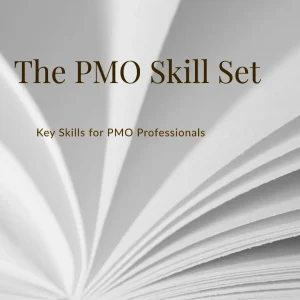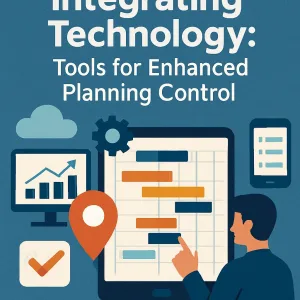Introduction
Contractors play a pivotal role across various industries, from construction and IT to healthcare and beyond. Project management contractors are professionals who are hired on a temporary basis to oversee specific projects, ensuring that they are completed on time, within budget, and to the required quality standards. Their expertise allows organizations to tap into specialized skills without the long-term commitment of hiring full-time employees. This flexibility is particularly valuable in industries where project demands fluctuate, making contractors essential for driving project success and innovation.
Networking emerges as a crucial strategy for project management contractors, serving as a powerful tool for building relationships that can lead to new opportunities and collaborations. In the contractor space, effective networking can facilitate connections with potential clients, industry peers, and other stakeholders, enhancing visibility and credibility. By fostering a robust professional network, contractors can not only secure new projects but also gain insights into industry trends, best practices, and potential challenges.
This blog will delve into the significance of networking for project management contractors, exploring various strategies and best practices to cultivate meaningful relationships. We will cover the following key areas:
- Understanding the Role of Project Management Contractors: A deeper look into the responsibilities and impact of contractors in different sectors.
- The Importance of Networking: An exploration of how networking can enhance career prospects and project outcomes.
- Effective Networking Strategies: Practical tips and techniques for building and maintaining a professional network.
- Leveraging Networking for Success: Real-world examples of how successful contractors have utilized networking to advance their careers.
By the end of this blog, project management contractors will have a clearer understanding of how to harness the power of networking to achieve greater success in their careers and projects.
Understanding the Importance of Networking
Particularly for contractors, networking emerges as a vital strategy for success. The ability to forge and maintain relationships can significantly influence a contractor’s career trajectory and project outcomes. Here are several key points that underscore the importance of networking in this field:
- Competitive Nature of Project Management: The project management field is characterized by intense competition, with numerous contractors vying for the same contracts and opportunities. In such an environment, having a robust network can provide a distinct advantage. Networking allows contractors to stand out by showcasing their skills, experiences, and unique value propositions to potential clients and collaborators. This visibility can be crucial in a crowded marketplace where many professionals possess similar qualifications and expertise [2].
- New Opportunities and Contracts: Networking is instrumental in uncovering new opportunities and securing contracts. By engaging with industry peers, attending events, and participating in professional groups, contractors can gain insights into upcoming projects and tenders that may not be widely advertised. These connections often lead to direct referrals or invitations to bid on projects, which can significantly enhance a contractor’s portfolio and income [5][9].
- Role of Referrals and Word-of-Mouth: In the contractor space, referrals and word-of-mouth recommendations are powerful tools for securing jobs. A strong network can lead to endorsements from satisfied clients or colleagues, which can be more persuasive than traditional marketing methods. Many contractors find that a significant portion of their work comes from referrals, highlighting the importance of maintaining positive relationships and delivering quality work that encourages clients to recommend them to others [4][5].
- Impact of Networking on Contractor Success: Statistics and case studies illustrate the profound impact of networking on contractor success. For instance, contractors who actively engage in networking activities report higher rates of contract acquisition and project success. A study indicated that professionals who prioritize networking are 70% more likely to secure new contracts compared to those who do not [2]. Additionally, case studies from successful contractors often reveal that their most lucrative projects originated from connections made through networking events or industry associations [4].
Building Your Network: Where to Start
Networking is a crucial aspect of success for project management contractors. Establishing strong relationships can lead to new opportunities, collaborations, and insights that enhance your career. Here are some initial steps to effectively begin networking in the contractor space:
Identify Key Stakeholders
Understanding who to connect with is the first step in building your network. Key stakeholders in project management include:
- Clients: Building relationships with clients can lead to repeat business and referrals. Understanding their needs and expectations is essential for long-term success.
- Other Contractors: Collaborating with fellow contractors can provide opportunities for joint ventures, sharing resources, and gaining insights into best practices.
- Suppliers: Establishing connections with suppliers can ensure you have reliable access to materials and services, which is vital for project success.
- Industry Professionals: Networking with professionals in your field can provide valuable insights, mentorship, and potential partnerships.
Join Professional Organizations and Associations
Becoming a member of professional organizations and associations is a strategic move for project management contractors. These groups often provide:
- Access to Resources: Members typically gain access to industry research, best practices, and training opportunities.
- Networking Events: Many organizations host events, conferences, and workshops that facilitate networking with other professionals in the field.
- Credibility: Being part of recognized associations can enhance your professional credibility and visibility in the industry.
Utilize Online Platforms and Forums
In today’s digital age, online platforms are invaluable for networking. Consider the following:
- LinkedIn: This professional networking site is a powerful tool for connecting with industry peers, showcasing your expertise, and engaging with relevant content. Regularly update your profile and participate in discussions to increase your visibility.
- Project Management Communities: Joining online forums and communities dedicated to project management can help you connect with like-minded professionals. These platforms often provide opportunities for knowledge sharing, advice, and collaboration on projects.
By taking these initial steps, project management contractors can effectively build a robust network that supports their professional growth and success. Networking is not just about making contacts; it’s about fostering relationships that can lead to new opportunities and insights in the ever-evolving field of project management.
Effective Networking Strategies
Networking is a crucial component for success as a project management contractor. Building and maintaining a professional network can open doors to new opportunities, collaborations, and insights that are essential in the ever-evolving landscape of project management. Here are some actionable strategies to enhance your networking efforts:
- Attend Industry Conferences and Workshops: Participating in industry events is one of the most effective ways to meet potential clients, partners, and peers. Conferences and workshops provide a platform to learn about the latest trends, share knowledge, and connect with other professionals. Engaging in discussions and participating in breakout sessions can help you establish your presence in the field and foster relationships that may lead to future projects.
- Value of Informational Interviews and Mentoring Relationships: Seeking out informational interviews with experienced professionals can provide invaluable insights into the industry. These conversations can help you understand the nuances of project management and identify potential career paths. Additionally, establishing mentoring relationships can offer guidance and support as you navigate your career. A mentor can provide advice, share experiences, and introduce you to their network, further expanding your connections.
- Effective Follow-Up with New Contacts: After meeting new contacts, it’s essential to follow up promptly. A simple thank-you email expressing appreciation for their time can go a long way. Personalize your message by referencing specific topics discussed during your meeting. This not only reinforces your connection but also keeps you on their radar for future opportunities. Consider scheduling a follow-up meeting or coffee chat to deepen the relationship.
- Role of Social Media in Showcasing Expertise: In today’s digital age, social media platforms like LinkedIn, Twitter, and even Instagram can be powerful tools for networking. Use these platforms to share your insights, project successes, and industry-related content. Engaging with others by commenting on their posts or sharing relevant articles can help you build rapport and establish yourself as a knowledgeable professional in the project management space. Additionally, joining online groups and forums can facilitate discussions and connections with like-minded individuals.
By implementing these strategies, project management contractors can effectively build and maintain a robust professional network that supports their career growth and success in the industry. Networking is not just about making contacts; it’s about cultivating relationships that can lead to collaborative opportunities and shared knowledge.
Nurturing Relationships Over Time
The significance of networking cannot be overstated. Building and maintaining professional relationships is essential for long-term success and can lead to new opportunities, collaborations, and a robust support system. Here are some key strategies to nurture these relationships effectively:
Importance of Regular Communication and Check-Ins
Maintaining open lines of communication is crucial in fostering strong relationships. Regular check-ins with your network can help keep everyone informed about ongoing projects, industry trends, and potential opportunities. Here are some effective practices:
- Schedule Regular Updates: Set aside time for periodic catch-ups, whether through phone calls, video conferences, or in-person meetings. This demonstrates your commitment to the relationship and keeps you top-of-mind for potential collaborations.
- Utilize Technology: Leverage tools like email newsletters or social media platforms to share updates and insights. This not only keeps your network informed but also encourages engagement and interaction.
Providing Value to Your Network
To strengthen your professional relationships, it’s essential to offer value to your connections. This can be achieved through various means:
- Share Resources: Provide your network with valuable resources, such as articles, tools, or templates that can aid in their projects. This positions you as a knowledgeable and helpful contact.
- Offer Insights: Share your expertise and insights on industry trends or best practices. This not only helps your connections but also establishes you as a thought leader in your field.
- Be a Connector: Introduce people within your network who may benefit from knowing each other. This fosters goodwill and strengthens your position as a valuable resource.
Encouraging Participation in Community Events and Continued Education
Engagement in community events and ongoing education is vital for personal and professional growth. Here’s how to encourage this within your network:
- Attend Industry Events: Participate in conferences, workshops, and networking events. Encourage your connections to join you, as these gatherings provide excellent opportunities for relationship building and knowledge sharing.
- Promote Continued Learning: Advocate for professional development by sharing information about relevant courses, certifications, or webinars. This not only enhances your skills but also shows your commitment to growth, which can inspire others to do the same.
- Create a Community: Consider organizing informal meetups or study groups focused on specific topics within project management. This fosters a sense of community and encourages ongoing collaboration among your peers.
By prioritizing regular communication, providing value, and engaging in community activities, project management contractors can effectively nurture their professional relationships over time. These efforts not only enhance individual careers but also contribute to a more connected and supportive industry.
Leveraging Your Network for Opportunities
In project management contracting, networking is not just a beneficial skill; it is essential for success. Building and maintaining relationships can open doors to new job opportunities, collaborations, and professional growth. Here are some key strategies for effectively leveraging your network as a project management contractor.
Asking for Referrals and Recommendations
One of the most effective ways to tap into your network is by asking for referrals and recommendations. Here are some tips to do this effectively:
- Be Specific: When reaching out to your contacts, clearly articulate what type of opportunities you are looking for. This specificity helps your network understand how they can assist you.
- Build Relationships First: Before asking for referrals, ensure you have established a rapport with your contacts. Engage with them regularly, share insights, and offer your assistance when possible. This reciprocity fosters goodwill and increases the likelihood of them supporting your requests.
- Follow Up: After receiving a referral, always follow up with a thank-you note or message. This not only shows appreciation but also keeps the lines of communication open for future interactions.
Collaborative Projects and Partnerships
Collaboration is a powerful tool in the contractor space. Engaging in collaborative projects can enhance your visibility and credibility within your network. Here’s how to approach this:
- Identify Complementary Skills: Look for other contractors or professionals whose skills complement yours. By partnering on projects, you can combine strengths and deliver more comprehensive solutions to clients.
- Participate in Joint Ventures: Consider forming joint ventures for larger projects. This not only spreads the risk but also allows you to pool resources and expertise, making your offerings more attractive to potential clients.
- Engage in Professional Associations: Joining industry-specific associations can provide opportunities for collaboration. These organizations often host events and workshops that facilitate networking and partnership formation.
Showcasing Your Work and Successes
To effectively leverage your network, it is crucial to showcase your work and successes. Here are some strategies to do this:
- Share Case Studies: Create detailed case studies of your successful projects and share them with your network. Highlight the challenges faced, solutions implemented, and the results achieved. This not only demonstrates your capabilities but also serves as a conversation starter.
- Utilize Social Media: Platforms like LinkedIn are excellent for showcasing your achievements. Regularly post updates about your projects, share insights, and engage with your network’s content. This visibility keeps you top-of-mind for potential opportunities.
- Host Webinars or Workshops: Consider hosting webinars or workshops to share your expertise. This positions you as a thought leader in your field and allows you to connect with others who may be interested in collaborating or hiring you.
Challenges in Networking and How to Overcome Them
Networking is a crucial aspect of success for project management contractors, yet many face significant challenges that can hinder their ability to build valuable relationships. Understanding these barriers and implementing strategies to overcome them can lead to more fruitful connections and opportunities in the industry.
Common Fears and Barriers
- Shyness and Social Anxiety: Many contractors may feel intimidated in networking situations, fearing judgment or rejection. This shyness can prevent them from initiating conversations or engaging with potential contacts.
- Perceived Lack of Expertise: Contractors might believe they lack the necessary knowledge or experience to engage meaningfully with others in their field. This self-doubt can lead to hesitance in approaching peers or industry leaders.
- Fear of Rejection: The fear of being turned away or ignored can be a significant barrier. This fear can create a mental block that discourages contractors from reaching out to others.
- Time Constraints: With the demands of project management, contractors may feel they do not have enough time to dedicate to networking efforts, leading to a lack of engagement.
Practical Tips to Overcome Networking Challenges
- Set Achievable Networking Goals: Start small by setting specific, attainable goals for networking. For instance, aim to connect with one new person at each industry event or reach out to a certain number of contacts each month. This approach can make networking feel less overwhelming and more manageable.
- Practice Active Listening: Focus on listening more than speaking during networking interactions. This not only helps to ease anxiety but also allows contractors to learn from others and build rapport naturally.
- Utilize Online Platforms: Leverage social media and professional networking sites like LinkedIn to connect with others in the industry. Online platforms can provide a less intimidating environment for initiating conversations and building relationships.
- Join Professional Groups: Participate in industry-specific groups or associations. These organizations often provide networking opportunities in a more structured and supportive environment, making it easier to connect with peers.
Reframing Networking as Relationship-Building
Instead of viewing networking as a self-promotional activity, contractors should reframe it as an opportunity to build genuine relationships. This shift in perspective can alleviate some of the pressure associated with networking. Here are some ways to embrace this mindset:
- Focus on Mutual Benefits: Approach networking with the intention of finding ways to help others. By offering support or sharing resources, contractors can create a foundation of trust and collaboration.
- Be Authentic: Authenticity is key in building lasting relationships. Contractors should strive to be themselves and share their true interests and experiences, which can foster deeper connections.
- Follow Up and Stay Engaged: After initial meetings, make an effort to follow up with new contacts. This could be through a simple message expressing appreciation for the conversation or sharing relevant articles. Staying engaged helps to solidify the relationship over time.
By addressing these challenges and adopting a relationship-focused approach to networking, project management contractors can enhance their professional connections and ultimately contribute to their success in the industry.
Conclusion
Particularly for contractors, networking emerges as a pivotal element that can significantly influence both career progression and project success. Building relationships within the industry not only opens doors to new opportunities but also fosters collaboration and knowledge sharing, which are essential for navigating the complexities of project management.
- Significance of Networking: Networking allows project management contractors to connect with peers, clients, and stakeholders, creating a robust support system that can lead to successful project outcomes. It enhances visibility in the industry and can lead to referrals and partnerships that are crucial for business growth. By engaging with others, contractors can also stay informed about industry trends and best practices, which can improve their project execution and management skills [2][4].
- Actionable Steps: To harness the power of networking, contractors should actively seek opportunities to engage with others in their field. This can include attending industry conferences, participating in online forums, and joining professional organizations. Additionally, leveraging social media platforms to connect with fellow professionals can be an effective way to expand one’s network. Regularly reaching out to existing contacts to maintain relationships is equally important, as it keeps the lines of communication open and fosters a sense of community [1][8].
In summary, networking is not just a beneficial activity; it is a vital strategy for project management contractors aiming to thrive in a competitive landscape. By prioritizing relationship-building and actively engaging with others, contractors can unlock new opportunities and enhance their professional journey.
Find out more about Shaun Stoltz https://www.shaunstoltz.com/about/.
This post was written by an AI and reviewed/edited by a human.



